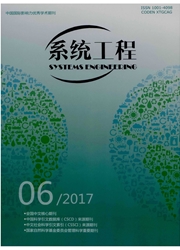

 中文摘要:
中文摘要:
小额贷款项目引入我国农村以来,其实施过程和绩效评估得到政界和学界的广泛关注。以我国东中西部贫困农户问卷调查数据为基础,通过多分类变量回归模型分析小额贷款项目类型、贷款额度等对项目经营状况的影响,发现:(1)小额贷款项目类型对项目经营状况影响显著,相比养殖业,从事种植和商贸业的农户盈利的概率较高;(2)贷款额度仅对项目持平影响显著,对项目盈利的影响不明显;(3)而贫困户主的年龄、技能等对项目经营状况均有显著影响,年龄对项目经营状况的影响表现出“间断性”,技能在项目盈利中表现出明显优势。
 英文摘要:
英文摘要:
Based on the questionnaire survey data on poor farmers, we use M-Logit classification variable regression model and analyze the influence of the project types and the amount of microcredit loan on the projects operating conditions. The research shows that: compared with the breeding industry , the planting and the tertiary ones in rural areas gain higher possibility in making profits, the amount of poverty alleviation loans has influenced the breaking-even points of the projects only and the impact on the project profitability is not obvious. This suggests that the amount of poverty alleviation loan does not contribute much to project performance and the householders' ages have a significant impact on the project profitability and display "discontinuity" in their influence on the project management conditions. Skills in project profit show obvious advantages.
 同期刊论文项目
同期刊论文项目
 同项目期刊论文
同项目期刊论文
 期刊信息
期刊信息
